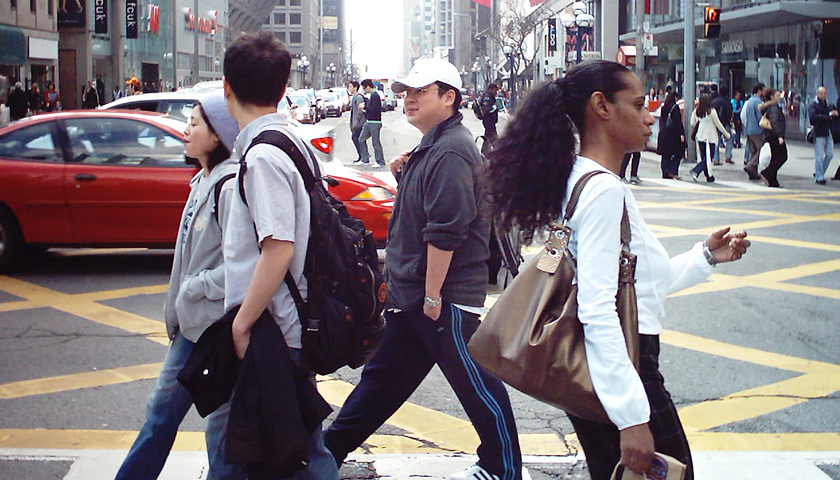by T.A. DeFeo
Georgia is increasingly dangerous for pedestrians, and a new analysis revealed the state outpaces the increase nationally.
In 2021, the number of pedestrian traffic fatalities in The Peach State increased by 45.6% from 2019 and 23.8% from 2020, according to an analysis from the Governors Highway Safety Association. But it’s not just a Georgia problem; the organization’s review found that the 7,485 pedestrian traffic deaths nationwide in 2021 was a 16.7% increase from 2019 and an 11.5% increase from 2020.
Georgia had an estimated 348 pedestrian traffic fatalities in 2021, increasing from 281 in 2020 and 239 in 2019. That represents 2.62 deaths per 100,000 residents in 2020 and 3.22 deaths per 100,000 in 2021.
The report found that dangerous driving behaviors, including speeding and impaired and distracted driving, are primarily responsible for the uptick in pedestrian deaths.
“What we have been seeing on the road has been an increase in speeds, and we’re not talking about just a few miles over, we’re talking about people who are traveling well above the legal speed limit,” Robert Hydrick, communications manager for the Governor’s Office of Highway Safety, told The Center Square.
“…The speed limit is the law, and it’s there to protect everyone on the road, not just vehicles,” Hydrick added. “It’s also there to protect pedestrians, bicyclists, motorcyclists [and] all roadway users. When people are traveling well above the speed limit, that creates a very dangerous situation for the other roadway users who are obeying the law and doing the things that are needed to be done to prevent crashes.”
Georgia’s rate of 3.22 deaths per 100,000 in 2021 exceeded the rates of several neighboring states, including Alabama (2.50), North Carolina (2.42) and Tennessee (2.59). Florida (4.13) and South Carolina (3.70) had higher per capita rates than The Peach State.
The Hands-Free Georgia Act took effect on July 1, 2018, and bars motorists from holding a phone while behind the wheel.
“Enforcement is the first and foremost way to get people to obey the law,” Hydrick said. “Our state troopers and local law enforcement officers are doing everything they can to enforce the law. Unfortunately, they cannot be everywhere at once, and it just takes — and it’s part of our messaging — people to understand that what’s on a phone is not more important than someone’s life.”
– – –
T.A. DeFeo is a contributor to The Center Square.
Photo “Pedestrians Crossing” by Gary J. Wood. CC BY-SA 2.0.





